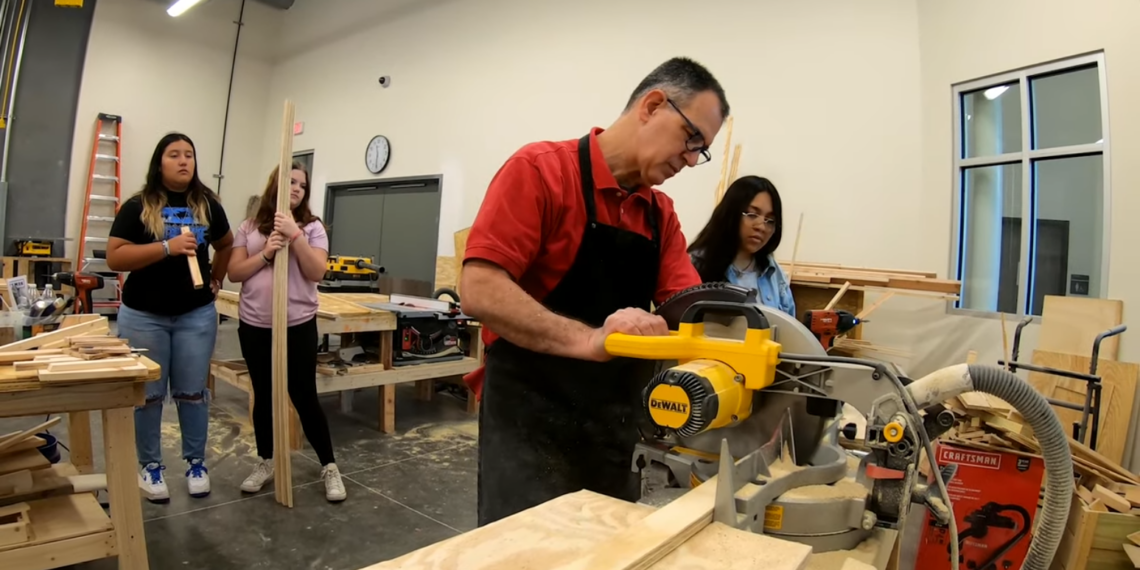By Jeffrey Smith, CEO of the Home Builders Association of Greater Tulsa
For a student to be successful in their future career endeavors, that student must be equipped with the skills and specialized training that will qualify them for those competitive future jobs. Schools play a crucial role in building out the future of our students and our state. Oklahoma and its many industries cannot thrive if the next generation is not prepared to enter the workforce. Unfortunately, Oklahoma schools are not providing our kids with enough career training opportunities. High school graduation requirements in our state are closing career pathways instead of building them, but legislation currently waiting to be signed into law by Gov. Kevin Stitt will create more opportunities for all students and their futures.
Education, at its best, is a cathedral of possibilities for the young mind, giving each student a multitude of opportunities to forge their future success. Those opportunities must be built as early as possible, starting from the ground floor. Oklahoma schools must offer career-oriented educational pathways through which students can advance toward their future, gaining the skills they will need to flourish in those careers along the way. Oklahoma’s public school graduation requirements are geared toward getting students into college. But not all Oklahoma high school students plan on attending college. What about those young men and women? What career preparation will they have after finishing high school?
House Bill 3278 addresses those important questions by creating the Graduation Act of 2024. This groundbreaking piece of legislation gives Oklahoma high school students more opportunities to meet graduation requirements by ensuring courses are relevant to their future, while maintaining the rigor needed to succeed.
We at the Home Builders Association of Greater Tulsa believe in the spirit and purpose of HB 3278. In fact, we have shared that purpose since 2020, which is the year that we launched a construction training program for Union Public Schools freshmen called Intro to Construction. It has been an astounding success! Since its inception, more than 1,000 students have participated in the course, receiving hands-on training and developing a wide range of skills that prepares them for careers in architecture, engineering, general contracting, home design work and many other construction-related professions. The program has proven so popular with students that we have added a second-year course for Union High School students. We also expanded the program to Nathan Hale High School in Tulsa, where the course reached capacity with 125 students. We will further expand the program to Broken Arrow High School this August. Broken Arrow administrators closed pre-enrollment for the course after nearly 200 students expressed interest in signing up. Our experience proves there is interest in aligning courses to a student’s future.
Oklahoma’s education systems can provide students with paths that will empower them to build a lucrative career without having to go to college. Oklahoma has a wealth of industries – aerospace, manufacturing, energy, etc. – in strong need of workers who are qualified to fill positions that require special skills and training. Nearly all business leaders say that schools need to make vocational and technological training a top priority so that our youth will be equipped with the skills they will need to fill those essential jobs. We can all agree that English, science, mathematics and history courses are essential for a balanced education, but technology and vocational training courses will give students the hands-on knowhow which will help them land a good job. Core classes such as mathematics are important, but if you can team them with courses that include real career training, then an even more valuable educational experience is achieved.
We must provide Oklahoma students with the educational options that will prepare them and ultimately empower them to forge ahead toward their careers. These students are our future, and our industries cannot grow and succeed without them. It is time to make graduation requirements more reflective of a student’s future, and not just a checklist of courses that don’t help students connect the dots to what lies ahead. The opportunities that House Bill 3278 provides are going to be a huge win for the state of Oklahoma.

















